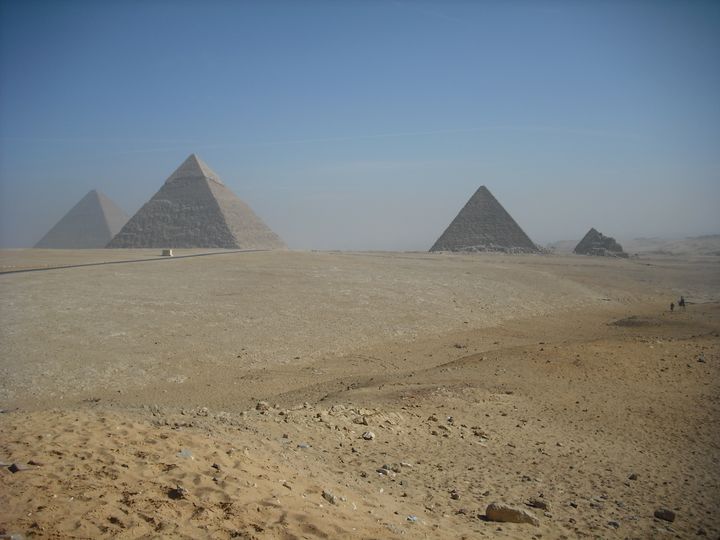QT 03/01/2025 Fri. Nehemiah 3. Spiritual, Community, Participation. 属灵、群体、参与。

QT 03/01/2025 Fri. Nehemiah 3. Spiritual, Community, Participation.
READ http://www.esvbible.org/neh3
Nehemiah 3 seems to be a mere list of who worked where to rebuild the wall of Jerusalem. Further examination, however, reveal valuable lessons.
Nehemiah 3:1 Rebuilding the Wall
Then Eliashib the high priest rose up with his brothers the priests, and they built the Sheep Gate. They consecrated it and set its doors. They consecrated it as far as the Tower of the Hundred, as far as the Tower of Hananel. (ESV)
Priests' participation in civil engineering works and construction seemed out of place. Weren't their priorities spiritual rites rather than using the changkul or other tools of masonry? No. "They consecrated it" (3:1), revealing that the actions were more than physical construction. The rebuilding of the wall of Jerusalem, which would house and protect the temple within it, was both a physical and spiritual activity merged into one. The priests' physical hands-on contribution showed the importance of this community project.
LESSON (1): The involvement in God's work requires participation by people of all appointments and callings. God uses variety and diversity as He employs people in His service. The bigger the project, the more likely that it cannot be accomplished by you or your small band of friends only alone. Budding and future church leaders must train themselves to see and operate on a "church-wide" level over and above "my fellowship" or "my CG" or "just my family". God is free to assign different roles to different people and families and equip them accordingly to the need required and calling.
We see in Nehemiah 3 that the participations were by various groups of people who contributed, yes, but who contributed very differently. Not all groups set the doors, bolts and bars at where they worked. Not all were skilled nor capable to do blacksmith works, even if they desired to do so. Some of them "repaired a thousand cubits of the wall, as far as the Dung Gate" (3:13), while others do repair less in terms of length of wall assigned.
LESSON (2): We must learn to appreciate all contributions to ministry today regardless of "quantity". There is no reason to expect homogeneous participation by each and every one equally in terms of number of tasks, length of time, or effort expended. The danger today is more of piling more and more work onto less and less people, due to laziness to discover and raise new skilled workers and leaders.
Total mobilisation is required for significant steps and directions in the expansion of God's kingdom. If you think that you are clever or "kilat", know that God expects more from you too. The Tekoites repaired, but their nobles would not stoop to serve their Lord (3:5). Tekoa is situated close to territories controlled by Geshem, who "jeered at us and despised us" (2:19). The Tekoite leaders, perhaps, feared being attacked by opponents and abstained from participating in this community rebuilding project.
LESSON (3): God's greatness is shown when He can overcome differences among His people, and overcome all obstacles presented by social and economic diversity among His people. We do well to accept that God's people can't possibly be in total agreement on every issue that crops up. Yet Nehemiah and contemporaries know when to put down their own idiosyncrasies on secondary things, so that God's primary purposes can still go ahead.
Many of us have experienced grasping totally non-negotiable things firmly at first, only to find out later that these are in fact not worth the sacrifices or prices you paid. These painful lessons are frequently not published or shared with others, but nevertheless should inform us that what we are doing now might just not be the best nor only way. Let us continue serve God with our varied yet equally important contributions of all kinds.
QT 03/01/2025 星期五. 尼希米 3. 属灵、群体、参与。
http://m.bbintl.org/bible/ncv/neh/3
《尼希米记》第 3 章似乎只是列出了重建耶路撒冷城墙的工人在哪一个工作地点工作。然而,进一步的研究揭示了宝贵的教训。
尼希米记 3:1 那时,大祭司以利亚实起来,和他一起作祭司的众兄弟都起来,重建了羊门;他们装上门扇,就把它分别为圣,又建造城墙,直到哈米亚城楼和哈楠业城楼,把城分别为圣.
祭司参与土木工程和建筑似乎不合时宜。难道他们的首要任务不是举行属灵仪式,而不是使用石匠的工具吗?不,“把它分别为圣”(3:1)表明他们的行动不仅仅是物质上的建造。耶路撒冷城墙的重建将容纳并保护城内的圣殿,这既是一项物质活动,也是一项属灵活动。祭司们身体力行的贡献表明了这一项目的工程对他们来说的重要性。
学习 (1): 参与上帝的工作需要不同职分和呼召的人的参与。上帝在使用人们事奉祂时,会使用他们的多样性。项目越大,就越有可能仅靠你或你的一小群朋友是无法完成的。新的和未来的教会带领人必须训练自己在 “整个教会 ”的层面上看待和运作,而不是在 “我的团契 ”或 “我的小组 ”或 “我的家庭 ”的层面上而已。神可以自由地将不同的角色分配给不同的人和家庭,并根据需要和呼召相应地装备他们。
我们在《尼希米记》第 3 章中看到,参与的人来自不同的群体,他们做出了贡献,但贡献的方式却大相径庭。并不是所有的人都在自己工作的地方装上门扇、门插和门闩。不是所有的人都有技术,也不是所有的人都有能力打铁,即使他们想这样做。他们中的一些人 “修筑城墙四百四十公尺,直至粪门”(3:13),而其他人所修的墙长度也有较少的。
学习(2): 我们必须学会欣赏今天所有对事工的贡献,无论其 “数量 ”如何。我们没有理由期望每个人在任务数量、时间长短或付出的努力方面都有同样的参与。今天的危险更多的是把越来越多的工作堆在越来越少的人身上,因为懒于发现和培养新的熟练工人和领袖。
要想在神的国度中迈出重要的一步,找到重要的方向,就必须全面动员。如果你认为自己很聪明或很 “能干”,要知道神对你的期望也更高。提哥人重修,但他们的贵族不愿屈尊事奉他们的主(3:5)。提哥阿靠近基谢姆控制的领土,基谢姆 “讥笑我们,藐视我们”(2:19)。也许,提哥亚人的领袖们害怕受到反对者的攻击,所以没有参与这个群体的重建项目。
学习(3): 当上帝能够克服祂子民之间的分歧,克服祂子民之间社会和经济多样性所带来的一切障碍时,祂的伟大就显现出来了。我们应该承认,上帝的子民不可能在出现的每一个问题上都完全一致。然而,尼希米和同时代的人知道什么时候应该在次要的事情上放下自己的特立独行,以便上帝的主要目的仍能得以实现。
我们中的许多人都有过这样的经历:一开始牢牢抓住完全没有商量余地的事情,后来却发现这些事情其实并不值得你做出牺牲或付出代价。这些惨痛的教训往往不会公布于众,也不会与他人分享,但却应该告诉我们,我们现在所做的也许并不是最好的,也不是唯一的方法。让我们继续用我们各种不同、但同样重要的贡献来事奉上帝吧。


